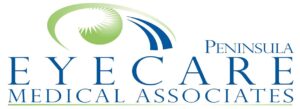A contact lens is a thin, convex disc that floats on the surface of the eye, providing vision correction. With advances in optical technology, most people can use contact lenses, regardless of the type or extent of their vision problems. This includes patients with astigmatism, and those who need bifocal or multifocal lenses. In some cases, however, contact lenses are contraindicated.
Types Of Contact Lenses
There are several varieties of contact lenses. The distinctive features of each offer a wide range of options.
Soft Contact Lenses
There are three basic types of soft contact lenses.
Daily-Wear Lenses
Daily-wear soft contact lenses are the most popular type of contacts available. Made of a flexible plastic polymer, daily-wear lenses are put in each morning and taken out each night. Daily-wear contacts come in many colors and typically last about 1 year.
Extended-Wear Lenses
Extended-wear soft contact lenses can be worn all the time, including while sleeping. Depending on whether a person has 7-day (standard) or 30-day lenses, the lenses need to be taken out and cleaned once a week or once a month. This is done to give the eyes a rest, and reduce the risk of a corneal infection. Extended-wear lenses are made of soft silicone that retains moisture longer than daily-wear contacts. This allows more oxygen to reach the eye, preventing the buildup of bacteria and protein.
Disposable-Wear Lenses
Disposable soft lenses are intended to be discarded and replaced after they have been worn for a certain period of time. This makes them even easier to maintain than regular soft contacts. Many disposable lenses are designed for either replacement every morning, every two weeks or every month. Daily-wear disposables are worn during waking hours only, while extended-wear disposables can be worn during sleep as well.
Choice of lens is based upon doctor recommendation and patient need.
Gas-Permeable Lenses
Rigid, gas-permeable contacts have several advantages, including the following, over soft lenses:
- Correction of a wider range of vision problems
- Sharper vision than with most soft lenses
- More oxygen flow through to the eye, reducing risk of corneal irritation
- More durability than soft lenses, and less prone to deposit buildup
Because they are much harder than flexible contacts, gas-permeable lenses take some getting used to when they are first worn. They are also more likely than soft lenses to slip off the center of the eye and require adjustment, making them an inconvenient choice for patients who play sports or participate in other vigorous activities. Most patients, however, grow accustomed to the feel of gas-permeable lenses, and are satisfied with the improvement in vision they offer.
Most ophthalmologists offer a comprehensive array of contact lenses to suit their patients' needs. Prescriptions are required for all contact lenses.
If you experience any issues with our web store or placing an order, please call 1-800-301-3225.

